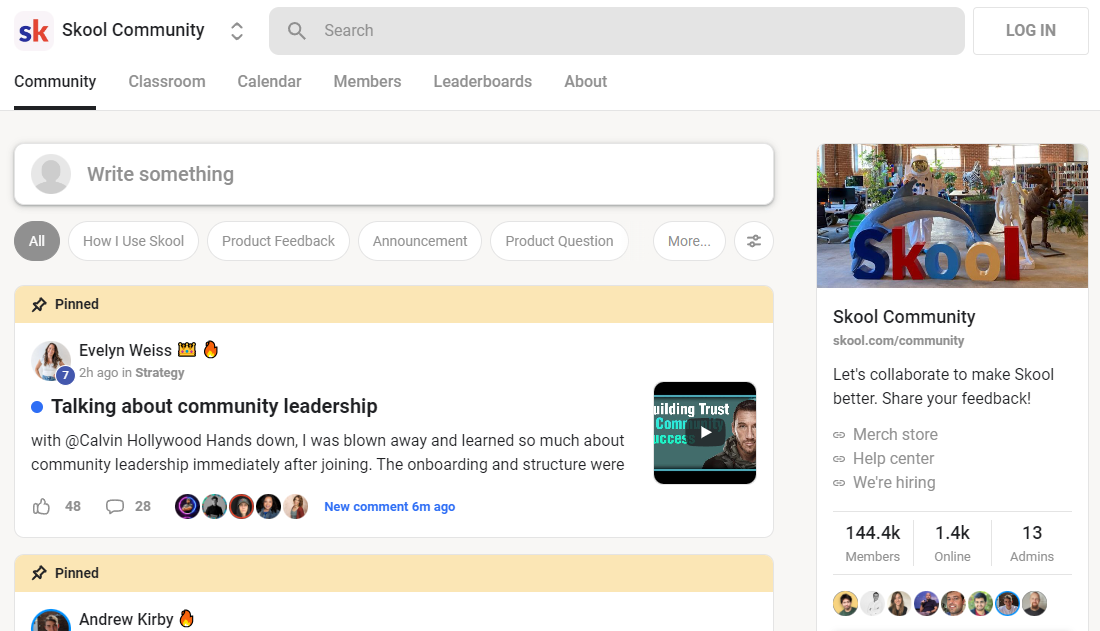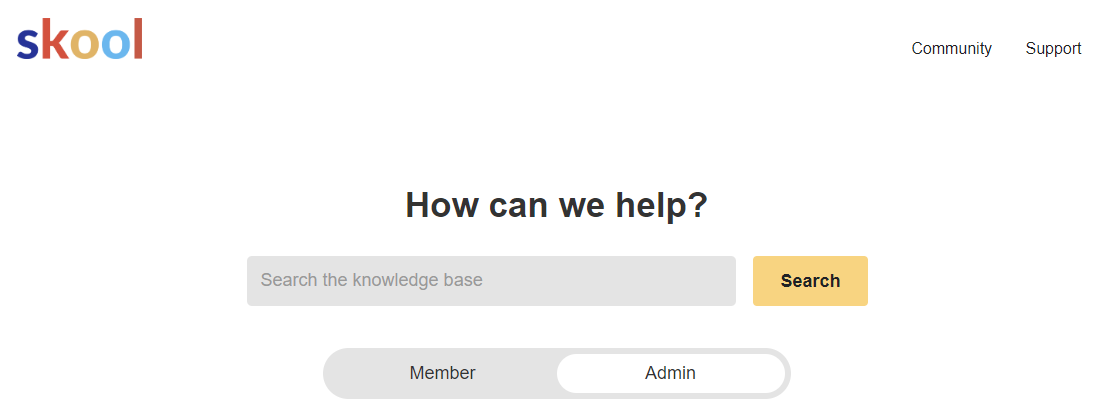Skool offers best-in-class gamification features that boost interaction. For instance, members can make levels based on their involvement, which open program content and other rewards that additionally motivate them.
Previously, makers had to make use of various tools for hosting programs, developing neighborhoods and taking care of e-mail marketing. This developed a disjointed experience for both creators and their target markets.
Creating Courses
Skool has a basic, easy to use interface and focuses on neighborhood structure and training course holding over various other functions. It enables creators to produce a vivid community for their courses and training programs by linking them with the appropriate target market. This additionally helps them keep an eye on the health and wellness of their content business with the help of a simple dashboard.

To begin, an individual can register for a cost-free 14-day trial of Skool. After that, they can pay $99 a month for the platform to hold a single area. There are nothing else rates alternatives readily available for the moment. Skool likewise processes repayment and pays creators weekly, but it does charge a 2.9% deal cost.
One of the distinct aspects of Skool is that it can be utilized to develop interactive courses. These can consist of live webinars, team tasks and real-time conversations. These sorts of courses motivate involvement and boost program conclusion prices. Additionally, Skool’s gamification features help to encourage area participation. For example, participants can earn factors and unlock course material when they reach specific levels in the neighborhood.
Customers can also use the social feed upon Skool to post updates and engage with others in the neighborhood. The feed looks like a Facebook team, yet with a much more controlled way of publishing. This helps to stay clear of the type of spam and abuse that happens on other social systems.
Handling Communities
Skool is a really easy platform to make use of, for both members and admins. Its simplicity is just one of its main selling points– when someone joins your area they won’t be confronted with a number of alternatives or attributes that can hinder their experience and confuse them.
The system begins as a private team by default, however you can easily alter this to open up your neighborhood to anybody that you want to be part of it. As soon as you’ve done this you’ll see a social feed like you would on Facebook Groups or WhatsApp (yet without all the rip-off stuff and swearing).
You can also include a classroom tab to your neighborhood that you can use to share educational content with your members. This function is especially beneficial for areas that are focused on learning or professional advancement as it helps to create an academic structure and makes it easy for members to track their progression. Furthermore, the platform has gamification elements that enable participants to gain factors by suching as blog posts or remarks. When they reach a specific degree they can open sources, such as courses, additionally driving interaction.
The other cool point is that Skool has a mobile app, similar to Mighty Networks or Slack, so participants can stay on top of your area and interact on the go. This is a great means to urge and involve your members and to help them get support from each various other when they need it, instead of simply turning to you for responses.
Skool Games Podcast
Skool concentrates on gamification, permitting users to gain points and badges for their contributions. This inspires participants to engage with the area and contribute to discussions. Consequently, this helps them level up and unlock benefits like videos and various other web content. Admins can also establish courses to be unlocked at particular degrees to further drive involvement.

The Skool user interface is very clean and instinctive. Its main features consist of the Community tab, which looks just like a Facebook group feed. Below, customers can post remarks and message along with upload images, links and video clips. Members can also see each others accounts and get in touch with them. Additionally, customers can develop personal groups in the area to review certain topics.
One more function of Skool is the Classroom tab, which resembles a YouTube livestream or Zoom meeting. Utilizing this, managers can organize trainings and webinars for their pupils. They can also include occasions in the calendar to stay upgraded on upcoming occasions and Skool Games Podcast.
Nonetheless, some elements of Skool can use renovation. For instance, the system isn’t adaptable when it comes to monetization as individuals can not supply multiple pricing rates for their programs and neighborhood memberships. Moreover, the device does not have an email marketing feature, which might be a bargain breaker for some course developers. It additionally doesn’t have indigenous video clip holding, indicating that customers need to make use of exterior platforms like YouTube, Loom and Vimeo for their videos.
Adding Content
The procedure for adding web content and engaging with members on Skool is simple and uncomplicated. Admins can produce posts with message, GIFs, video clips and polls. They can additionally include occasion calendars to notify community members of upcoming team Zoom calls or live streams. Furthermore, they can make use of Skool’s e-mail program attribute to send out a message to the entire community with a solitary click. This removes the demand for marking and checklist segmentation, which can be cumbersome.
In addition, Skool’s gamification attributes can increase engagement and customer retention. It motivates members to interact with the web content regularly by rewarding them with various rewards. These include opening course content, making factors and earning a spot on neighborhood leaderboards.
While Skool uses a host of useful functions for creating and delivering on the internet courses, it’s except everybody. The system is best for coaches, specialists and various other details business owners. However, the price tag can be a barrier for some people seeking to monetize their on-line web content.
In addition, the absence of standard rates and a short free trial may be a deterrent for numerous. Furthermore, the platform’s laser-focus on eLearning can make it less desirable for individuals that want to market various other digital products. Nevertheless, despite these drawbacks, Skool Games Podcast is still a practical choice for any individual seeking to develop and generate income from on the internet training courses.